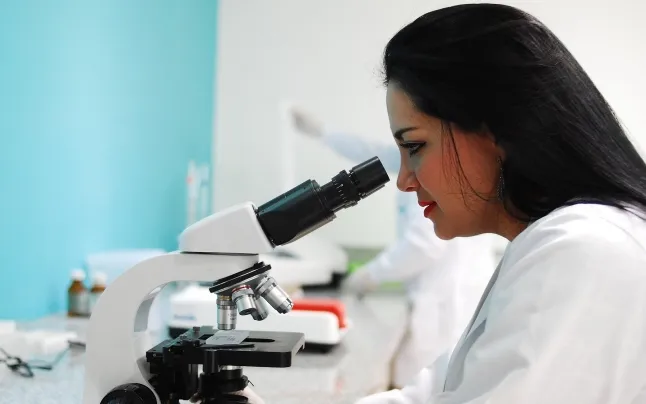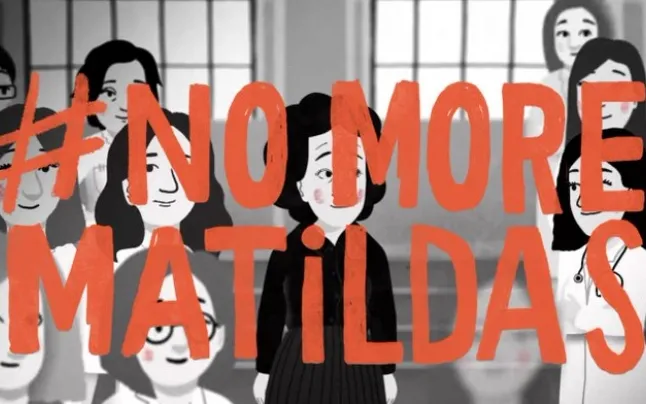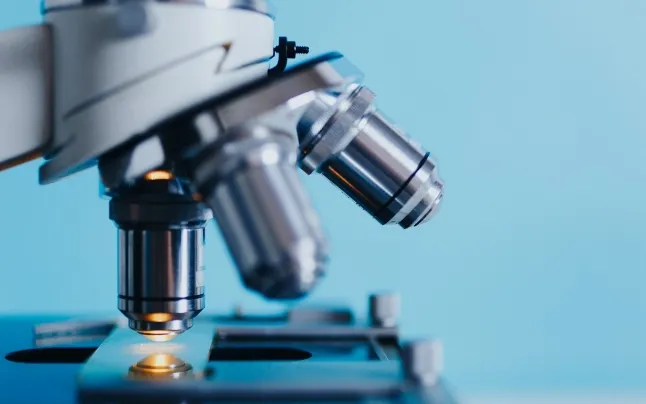The international initiative to make more visible the work of women scientists of both the past and present has been promoted by the Association of Women Researchers and Technologists (AMIT).
Historically, women who have engaged in scientific research have seen how their findings have been attributed to a male teammate or even to their husband. Science historian Margaret W. Rossiter named the phenomenon Matilda Joslyn Gage, after a women's rights activist and pioneer in denouncing the injustice of systematically ignoring the discoveries of brilliant women scientists throughout history.
The #NoMoreMatildas campaign has been promoted by the Association of Women Researchers and Technologists (AMIT), which was founded in 2002 and "since its birth has fought to vindicate and make visible the work of women scientists of the past and present", explains Adela Muñoz, president of AMIT-Andalusia and professor of Inorganic Chemistry at the University of Seville.
The campaign aims to raise awareness of the Matilda effect and to help women scientists who have been invisible to gain the prominence they should have had all along.
The lack of icons leads to fewer vocations
This lack of recognition of women’s work is not only an offense to technologists, scientists and researchers, but also makes girls have far fewer references to mirror and leads to fewer scientific vocations among female students. All of this perpetuates stereotypes and leads girls to think that they are less valid for science, abandoning their vocation or becoming stuck and unable to develop their potential.
The figures are devastating: only 20% of women occupy high-level positions in the field of research, only 28.5% of students in scientific careers are women, and in secondary education textbooks only 7.6% of the scientists mentioned are women.
AMIT hopes that these percentages will change, and considers the first step to be taken should involve scientific references in textbooks. For this reason, within the #NoMoreMatildas campaign they have drafted an appendix to give greater prominence to these invisible scientists in textbooks (starting on the fifth grade).
Among the researchers that appear in it are Ada Lovelace, the first programmer in history; Lise Meitner, a scientist who discovered nuclear fission (on which the atomic bomb was based, a project that did not involve her because she refused to be part of it); Nettie Stevens, who discovered sex chromosomes; Rosalind Franklin, who discovered the double helix structure of DNA, and Margarita Salas, a Spanish biochemist who made great strides in molecular biology.
According to Adela Muñoz, president of AMIT-Andalusia, “publishers have made public their desire to work with our organisation to adapt the content of textbooks to the plural reality of today's science, where the protagonists are not only white men”.
In addition, as part of this campaign to make women visible in science, the Association of Women Scientists and Technologists has published three imaginary biographies of Alexander Fleming, Albert Einstein and Erwin Schrödinger that invite us to think about what would have happened if they had been women.
Characteristics and repercussions of the campaign
The campaign has had a strong impact on social media, and many traditional media outlets have talked about it as well. A spokesperson from AMIT tell us about its origin: “Our budget did not allow us to launch a campaign of this magnitude and quality, but it was made possible thanks to the altruistic offer of the advertising agency Gettingbetter, in collaboration with the literary agency Dos Passos and the audiovisual content agency Kamestudio. Their professional knowledge about sending messages and their absolute willingness to follow our advice have made this campaign reach high quality standards."
“Not even in our wildest dreams could we have imagined that personalities like Carmen Calvo, Deputy Prime Minister of Spain; Pedro Duque, Minister of Science; and Mª Isabel Celaá, Minister of Education, would present the campaign at the Spanish headquarters of the European Parliament", admits the president of AMIT-Andalusia, although she emphasises that “this success is due, above all, to Spanish and international society, which have amplified and disseminated the message through all the means that were available to them”.









Add new comment